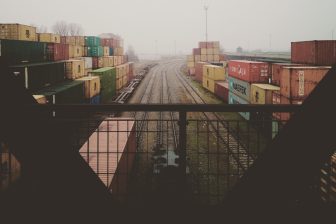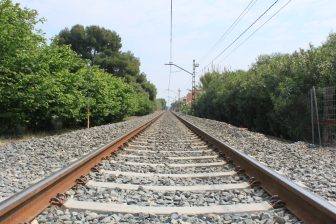
Train and truck drivers exempted from travel ban
Travelers from outside the EU are temporarily not permitted to enter the 25 countries of the Schengen zone, unless their trip is essential. This was decided by EU leaders during a video conference on the fight against coronavirus on Tuesday evening. This measure does not apply to those who transport goods. This type of movement should be facilitated at all times, the EU leaders emphasised.
“In order to avoid shortages and avoid that the social and economic difficulties that all European countries are already experiencing worsen, maintaining the functioning of the Single Market is key. Member States should therefore not undertake measures that jeopardise the integrity of the Single Market for goods, in particular of supply chains, or engage in any unfair practices”, the guidelines for border management reads. These guidelines were already published on Monday 16 March.
Essential goods
Although countries are permitted to impose additional border procedures, on the external border as well as within the Schengen area, these procedures should not obstruct the movement of essential goods, the EU guidelines issue. “Unobstructed transport of goods is crucial to maintain availability of goods, in particular of essential goods such as food supplies including livestock, vital medical and protective equipment and supplies.”
“Professional travel to ensure transport of goods and services should be enabled. In that context, the facilitation of safe movement for transport workers, including truck and train drivers, pilots and aircrew, across internal and external borders, is a key factor to ensure adequate movement of goods and essential staff”, the text reads.
Which countries
Of the 27 EU countries, Romania, Bulgaria, Croatia, Cyprus and Ireland are not members of the Schengen zone. The non-EU countries Norway, Iceland, Switzerland and Liechtenstein are included.
Nine EU states have currently fully sealed their borders to non-nationals over the coronavirus pandemic. These are the Czech Republic, Cyprus, Denmark, Hungary, Latvia, Lithuania, Poland, Slovakia, and Spain. Partial closures and extra border checks are imposed by Austria, Hungary, Slovenia, and several other countries.
Germany also partly closed its borders for nationals of all countries but Austria, Denmark, France, and Luxembourg, while Slovenia closed its border with Italy.
The guidelines on the movement of goods was published in response to these border closures. The restrictions on Schengen area borders was first announced on Monday evening, and formalised on Tuesday evening.
No hurdles
According to rail freight companies, there are currently no extra procedures carried out at the borders and trains operate as usual. Truck drivers may experience additional checks. The Dutch lobby organisation Evofenedex recommended cargo to be loaded onto trains in this regard.
On Friday 20 March RailFreight.com organises a webinar about the continuance of rail freight during the corona crisis. This webinar takes place on Friday 20 March. Registration is free of charge.





